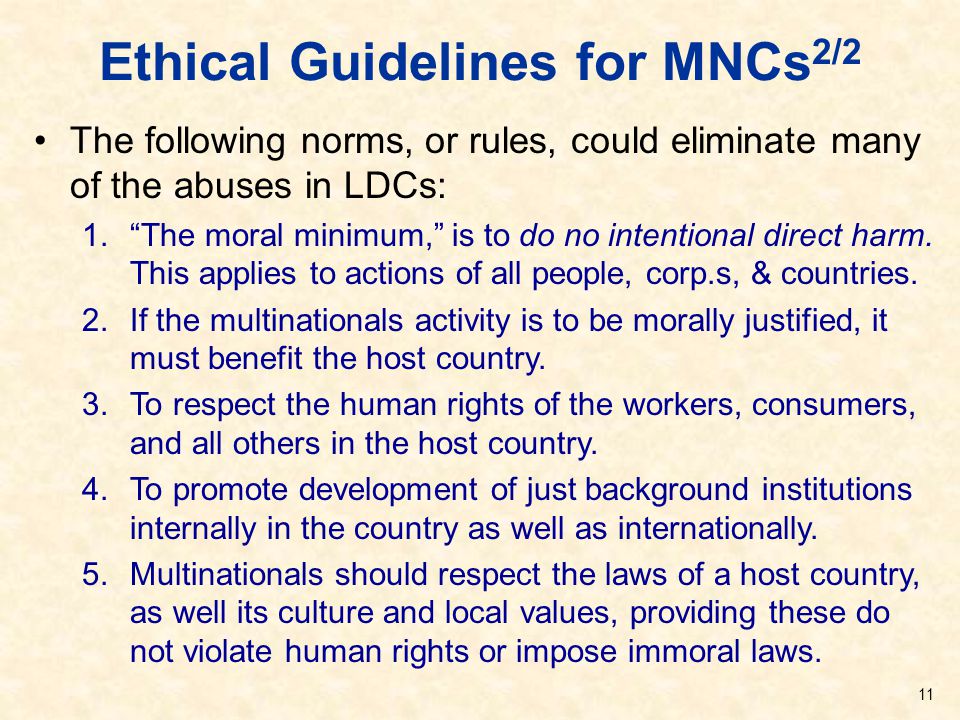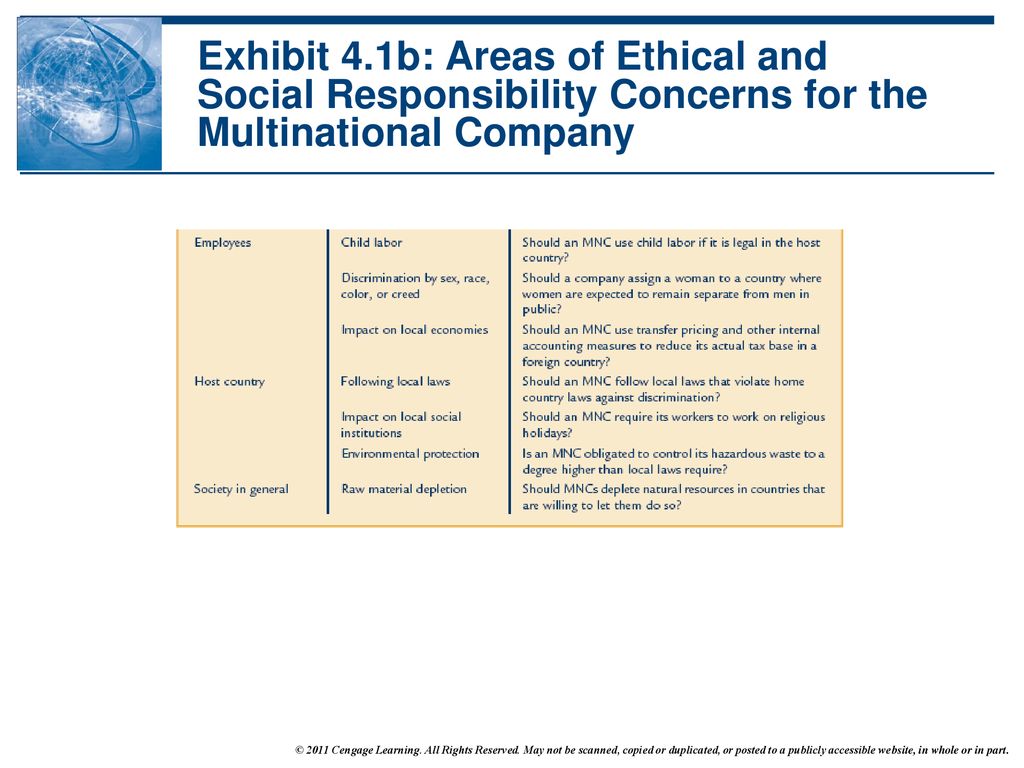A moral minimum for multinationals refers to the basic ethical standards that businesses should adhere to in order to operate in a responsible and respectful manner. These standards can vary depending on the specific industry, cultural context, and legal frameworks in which a company operates. However, there are some fundamental principles that should apply to all multinationals, regardless of their location or sector.
One such principle is the respect for human rights. Multinationals have a duty to respect and protect the rights of all individuals, including their employees, customers, and the communities in which they operate. This means that companies should not engage in activities that violate fundamental human rights, such as forced labor, child labor, or discrimination on the basis of race, gender, religion, or other factors.
Another important principle is the protection of the environment. Multinationals have a responsibility to minimize their impact on the natural world and to ensure that their operations are sustainable. This includes reducing greenhouse gas emissions, conserving natural resources, and minimizing waste and pollution. Companies should also seek to minimize their negative impact on local communities and ecosystems, and should consider the long-term consequences of their actions.
A third key principle is transparency and accountability. Multinationals should be open and transparent about their operations and should be willing to take responsibility for their actions. This includes being open to scrutiny from external stakeholders, such as investors, regulators, and the media, and being willing to engage in dialogue with these groups. Companies should also have systems in place to ensure that they are held accountable for any breaches of ethical standards or laws.
Finally, multinationals should also be committed to ethical business practices and to acting with integrity. This means avoiding corrupt practices, such as bribery and fraud, and being honest and transparent in their business dealings. Companies should also act with integrity in their relationships with employees, customers, and other stakeholders, and should seek to build trust and maintain high ethical standards in all of their activities.
In summary, multinationals have a responsibility to uphold a range of ethical standards in order to operate in a responsible and respectful manner. This includes respecting human rights, protecting the environment, being transparent and accountable, and acting with integrity. By adhering to these principles, multinationals can contribute to the well-being of their employees, customers, and the communities in which they operate, and can help to build a more sustainable and equitable world.
Multinational corporations play a significant role in the global economy and often have a great deal of power and influence. With this power and influence comes a certain level of responsibility to act ethically and adhere to moral standards. While the specifics of these moral minimums may vary from company to company and from country to country, there are some basic principles that should be upheld by all multinationals.
One key moral minimum for multinationals is to respect the rights of all individuals and communities affected by their operations. This includes the rights of employees, customers, and stakeholders, as well as the rights of those living in the areas where the company operates. This means treating all individuals with dignity and respect, and not discriminating against anyone on the basis of race, gender, religion, nationality, or any other protected characteristic. It also means taking steps to minimize the negative impacts of the company's operations on local communities and the environment, and working to address any harm that may have been caused.
Another important moral minimum for multinationals is to be transparent and accountable in their business practices. This means being open and honest about the company's operations and decisions, and being willing to accept responsibility for any mistakes or wrongdoing. It also means ensuring that the company is in compliance with all relevant laws and regulations, and taking steps to prevent corruption and other unethical behaviors.
In addition to respecting the rights of individuals and being transparent and accountable, multinationals should also strive to be socially responsible in their operations. This means considering the broader social and environmental impacts of the company's activities, and taking steps to minimize any negative impacts. This can include things like reducing the company's carbon footprint, supporting sustainable development initiatives, and engaging in corporate social responsibility (CSR) activities that benefit local communities.
Finally, multinationals should also be committed to upholding the highest standards of ethical conduct in all of their operations. This means acting with integrity and honesty at all times, and not engaging in behaviors that are deceptive, fraudulent, or unethical. It also means being willing to hold oneself and others accountable for upholding these standards, and taking steps to prevent and address any ethical breaches that may occur.
In conclusion, multinationals have a responsibility to adhere to certain moral minimums in their operations. This includes respecting the rights of all individuals and communities affected by their operations, being transparent and accountable, being socially responsible, and upholding the highest standards of ethical conduct. By adhering to these principles, multinationals can not only meet their legal and regulatory obligations, but also contribute to the greater good and build trust and credibility with stakeholders.





